At local auto parts stores, 5W20 and 5W30 are the most commonly found multigrade lubricants. These engine oils adapt their viscosity based on the temperature. However, the viscosity levels of these oils differ.
You might wonder if it's okay to use 5W20 instead of 5W30. Don't worry, as this article specifically addresses this question. Let's dive in!
Is It Advisable to Use 5W20 in Place of 5W30?
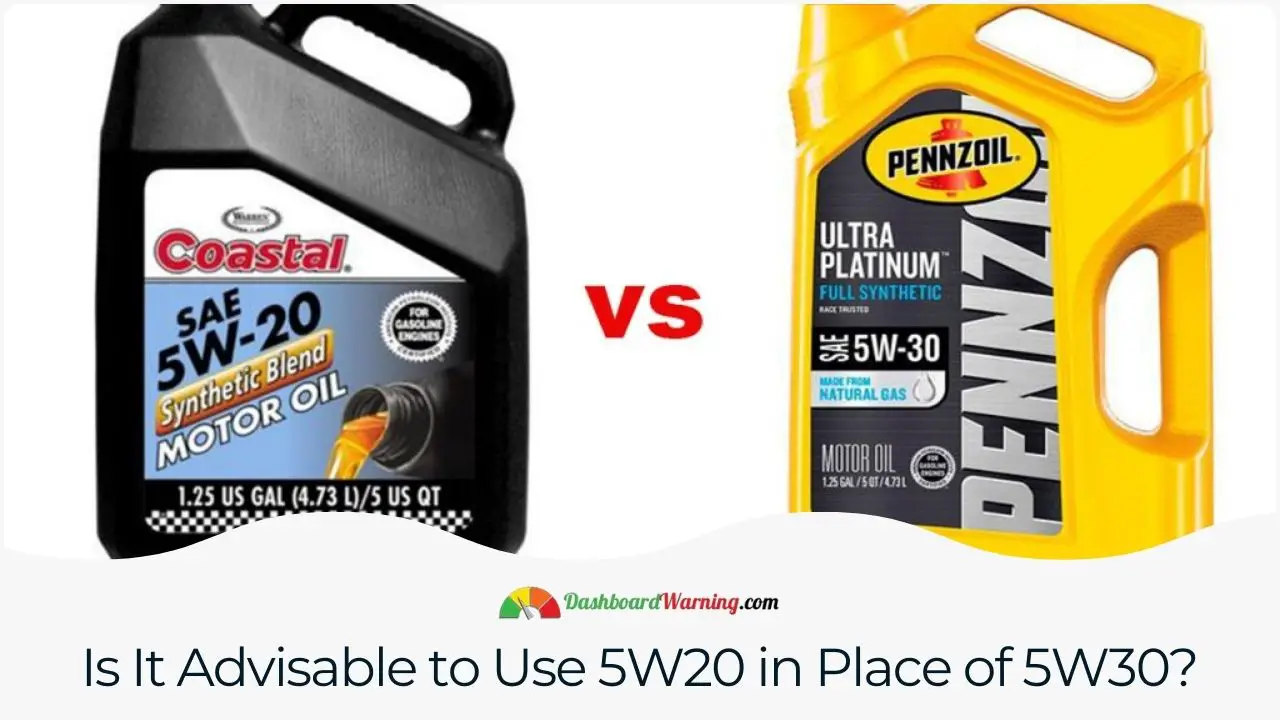
Using 5W20 instead of 5W30 is generally not recommended due to their differing viscosities. 5W20 is a thinner oil primarily designed for optimal performance in newer engines.
For cars manufactured between 1995 and 2003, it is crucial to switch to 5W30 as soon as possible.
Using 5W20, which is too thin, may not provide the necessary protection for your engine. Additionally, if your car is under warranty, using 5W20 could affect it.
What Are the Consequences of Using 5W20 Instead of 5W30?
The impact of using 5W20 instead of 5W30 largely depends on your car model. First, consult your owner's manual, which usually includes a chart of acceptable oil weights based on temperature, as newer cars often require specific motor oils.
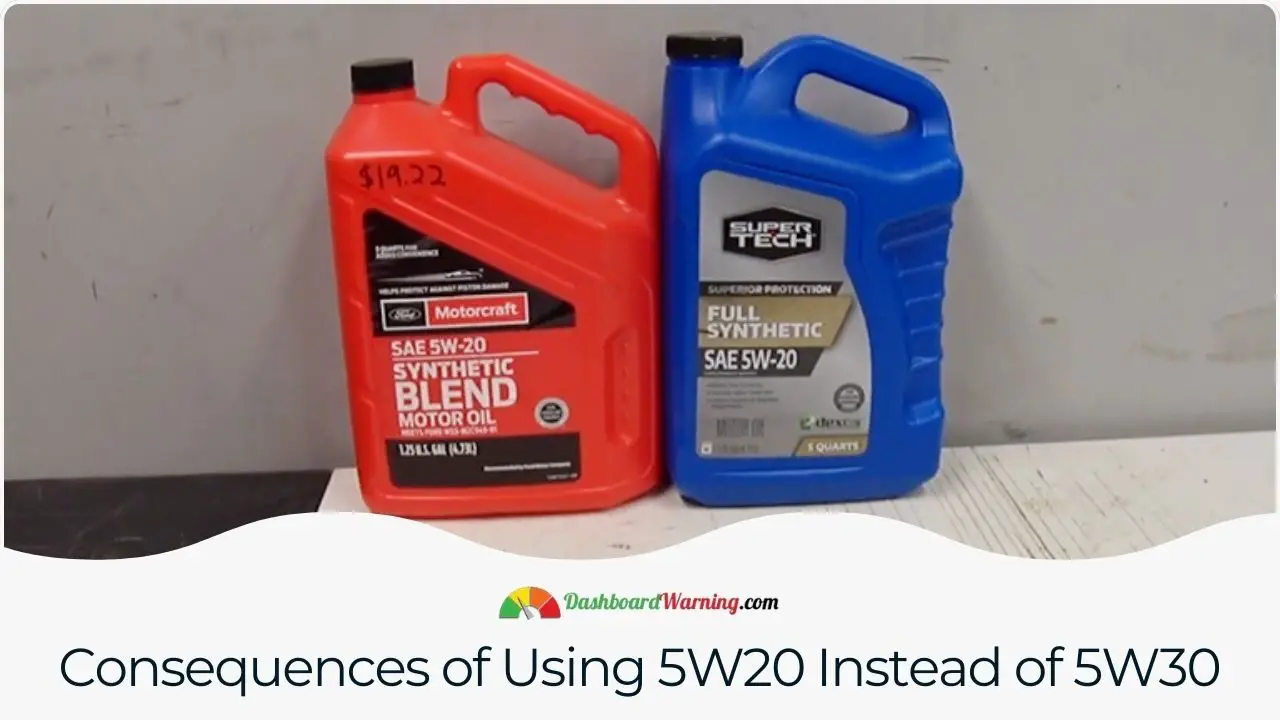
If your engine is compatible with 5W20, it will run effectively. However, you may notice a slight increase in fuel economy, more engine wear, and higher temperatures.
Accidental use of 5W20 won't cause significant harm to your engine. Many car manufacturers have updated their service manuals to permit the use of 5W20 in engines originally designed for 5W30.
Using thinner Oil like 5W20 might enhance fuel economy due to easier pumping. Your car's manual should list an acceptable range of viscosities.
Moreover, you can safely use either Oil in your vehicle's engine if you avoid extreme temperatures above 120°F or below -30°F, as both oils use the same base.
While using 5W20 instead of 5W30 is not ideal, your car's engine should be fine under normal driving conditions. However, revert to the recommended Oil at your next regular oil change.
Can 5W20 Be Mixed With 5W30?
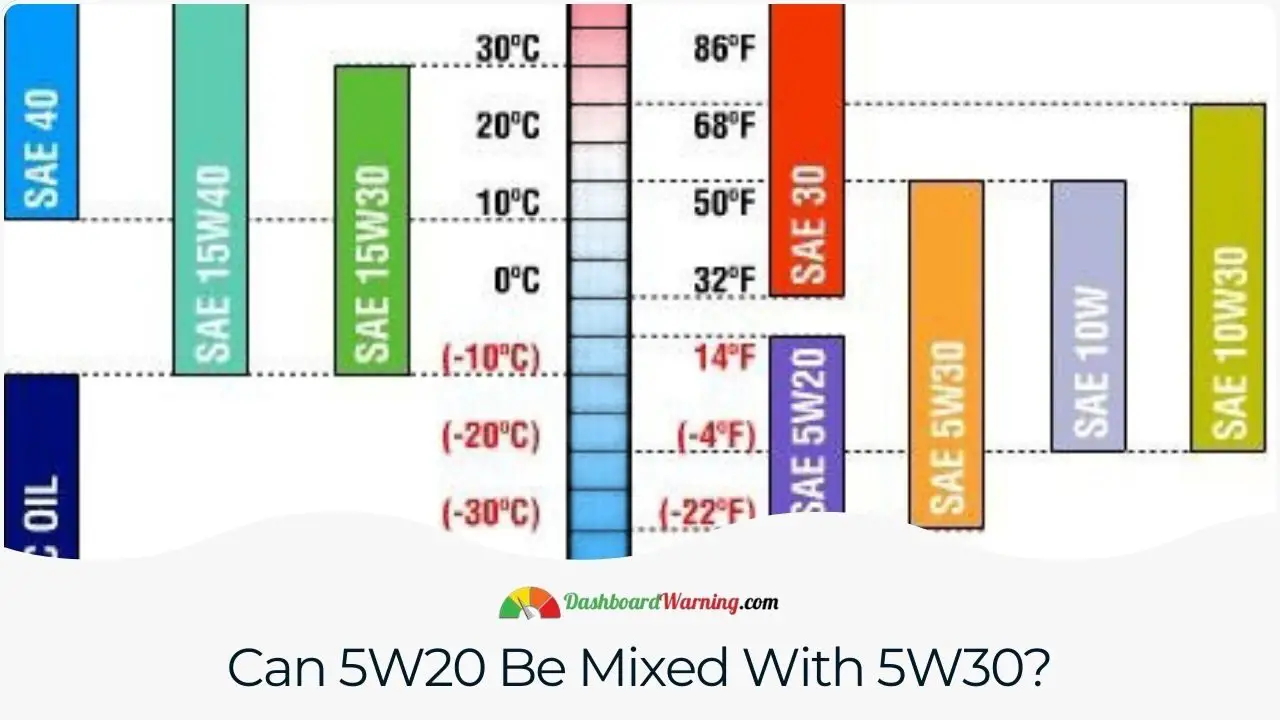
Mixing 5W20 with 5W30 is generally safe. Both oils perform similarly in cooler temperatures, so they blend well whether you combine 5W20 with 5W30 or vice versa.
However, it's best to use oils of the same API class from the same brand. This ensures no technical issues with the engine's core components.
While these oils have different additives and weight ratings, their additives won't fully blend. However, this should be fine.
What Distinguishes 5W-20 From 5W-30 Oil?

Viscosity is Crucial
The primary distinction between 5W20 and 5W30 motor oils is their viscosity, which determines the Oil's resistance to flow. The viscosity, indicated by the number, varies with temperature.
The initial "5" denotes the Oil's viscosity in cold temperatures, with "W" standing for winter. This means 5W oils provide quicker flow during hard engine startups, circulating rapidly through the bearings. The number following "W" represents the Oil's viscosity at higher temperatures, implying that the Oil is thicker in a heated environment, functioning like a 30-weight oil.
Performance in Different Weathers
Compared to 5W30, 5W20 is less dense, making it more efficient in cold weather. It flows swiftly and smoothly to deeper engine parts, reducing friction and enabling quicker engine startups.
Conversely, 5W30 is more effective in hot climates, as it doesn't thin as quickly under heat. This ensures better protection for engine parts at normal temperatures.
Economy and Efficiency
5W20 is more fuel-efficient in cold weather than 5W30, as it causes less drag on engine components like pistons and crankshafts, slightly boosting fuel economy.
Meanwhile, the 5W30 is popular and widely used for its comprehensive engine protection and compatibility with various engine types.
5W20 vs. 5W30 Comparison Results
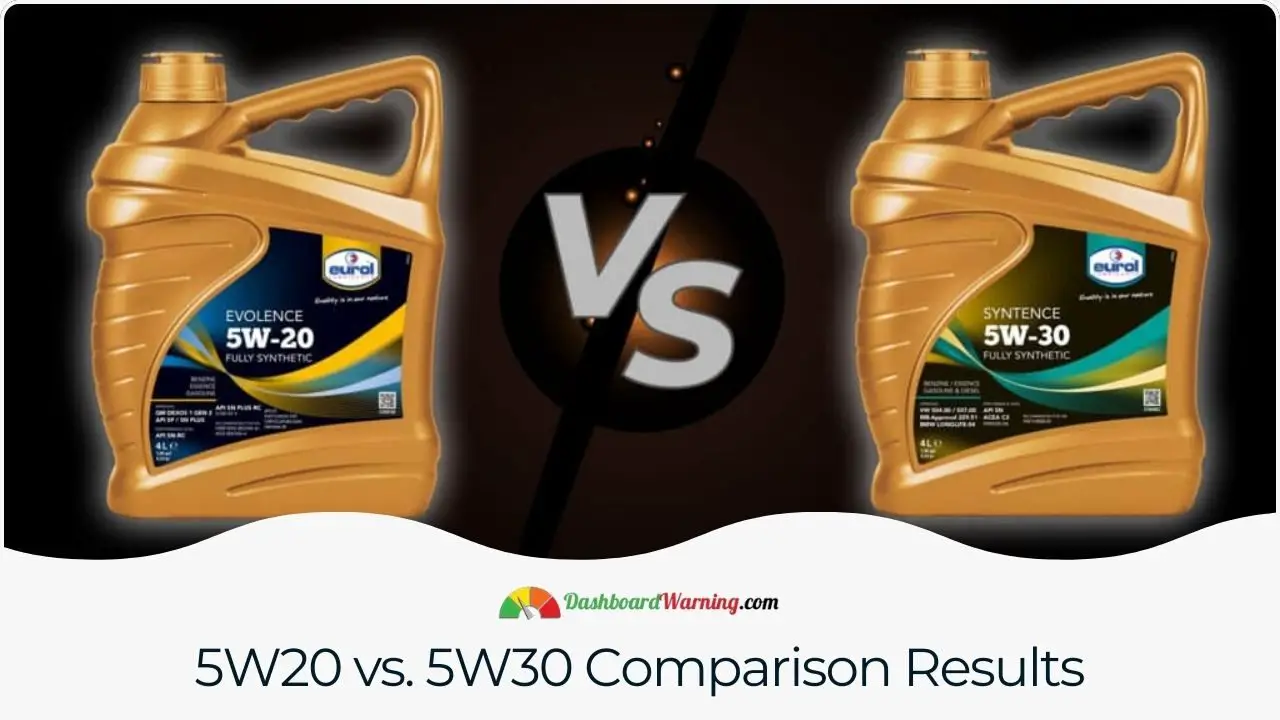
- Viscosity: 5W20 is less dense than 5W30.
- Maximum Operating Temperature (°F): 5W20 and 5W30 operate effectively up to 356°F.
- Minimum Operating Temperature (°F): Both oils function below -31°F.
- Pour Point (°F): 5W20 has a lower pour point at -54°F, compared to 5W30's -38°F.
- Flash Point (°F): 5W20 and 5W30 have a flash point of 392°F.
- Preferable Climate: 5W20 is better suited for colder climates, while 5W30 is ideal for warmer conditions.
- Friction: 5W20 has less friction compared to 5W30.
- Thickness: 5W20 is thinner, whereas 5W30 is thicker.
- Flow: 5W20 offers a swifter flow than 5W30.
Summary
5W20 and 5W30 are versatile synthetic engine oils that provide excellent protection for your engine in various climates. If you're in a colder region, 5W20 is more effective for your car's engine, whereas 5W30 excels in higher temperatures.
Despite their similar performance, consider using 5W20 in Place of 5W30. If you're viewing this, the information above offers a comprehensive comparison. However, it's crucial to always adhere to the recommendations in your vehicle's manual, especially regarding using different engine oils.
Was this page helpful?

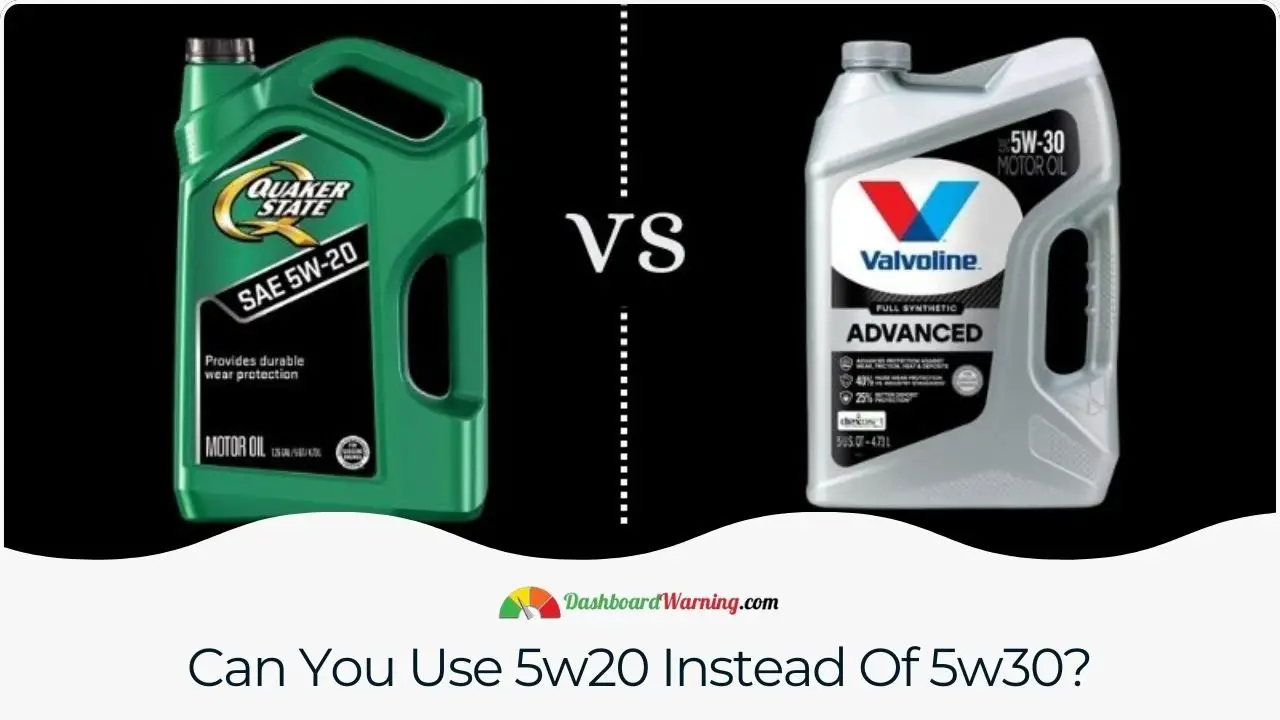

More important content about Tips and Advice
Use 5w30 instead of 0w20 - Advantages and Disadvantages
Subaru Legacy Years To Avoid - 5 Worst Years
Tractor Dashboard Symbols And Meanings
Suzuki Sx4 Years To Avoid - 5 Worst Years
Cummins ISX Years To Avoid and Why
Tips and Advice
Subaru Legacy Years To Avoid - 5 Worst Years
Tractor Dashboard Symbols And Meanings
Suzuki Sx4 Years To Avoid - 5 Worst Years
Cummins ISX Years To Avoid and Why
Car With Key Symbol On Dashboard
Electronic Throttle Control Warning Light On - Why?